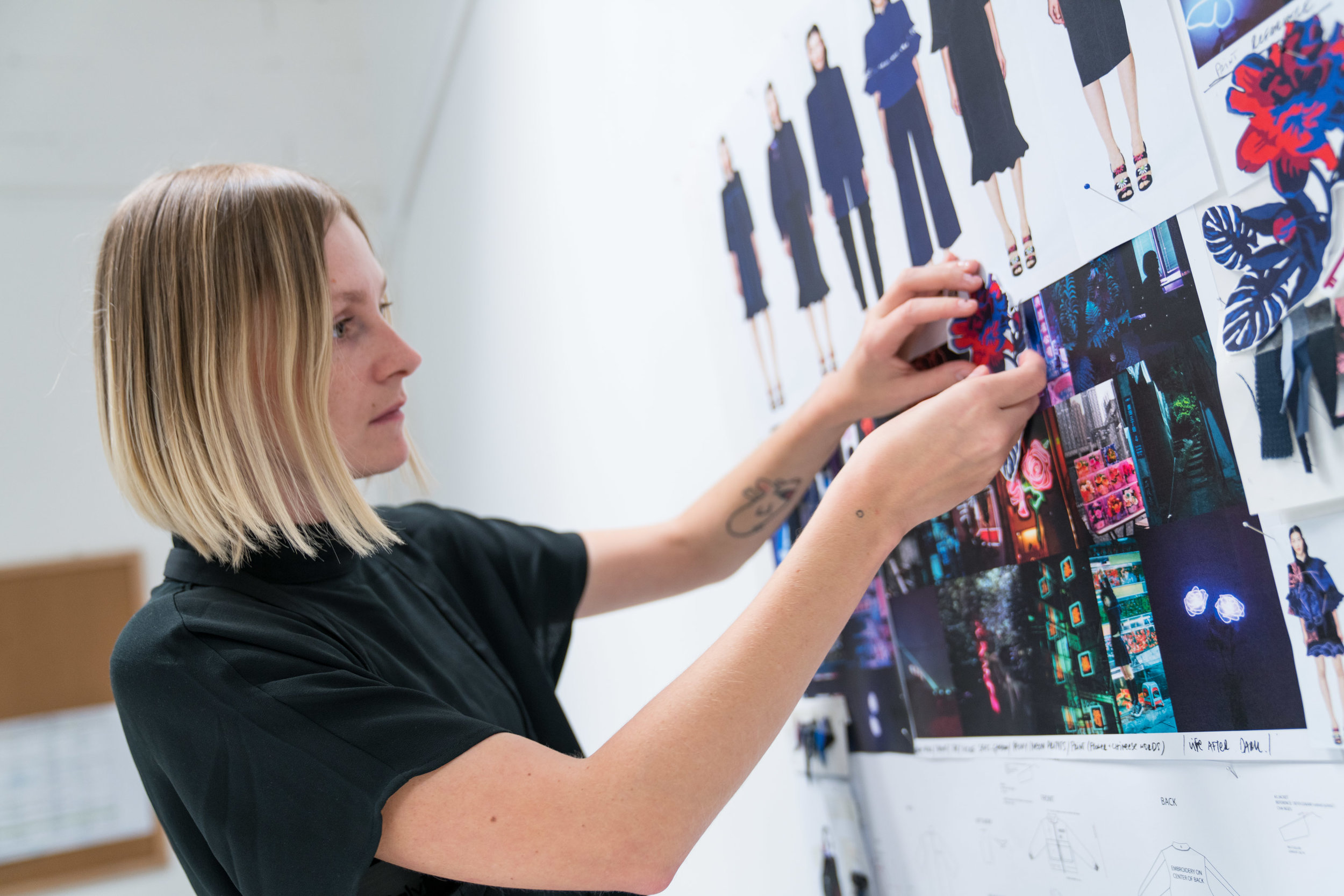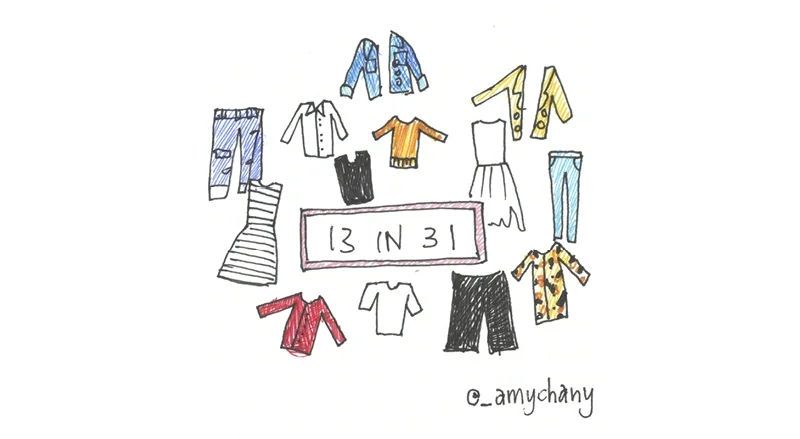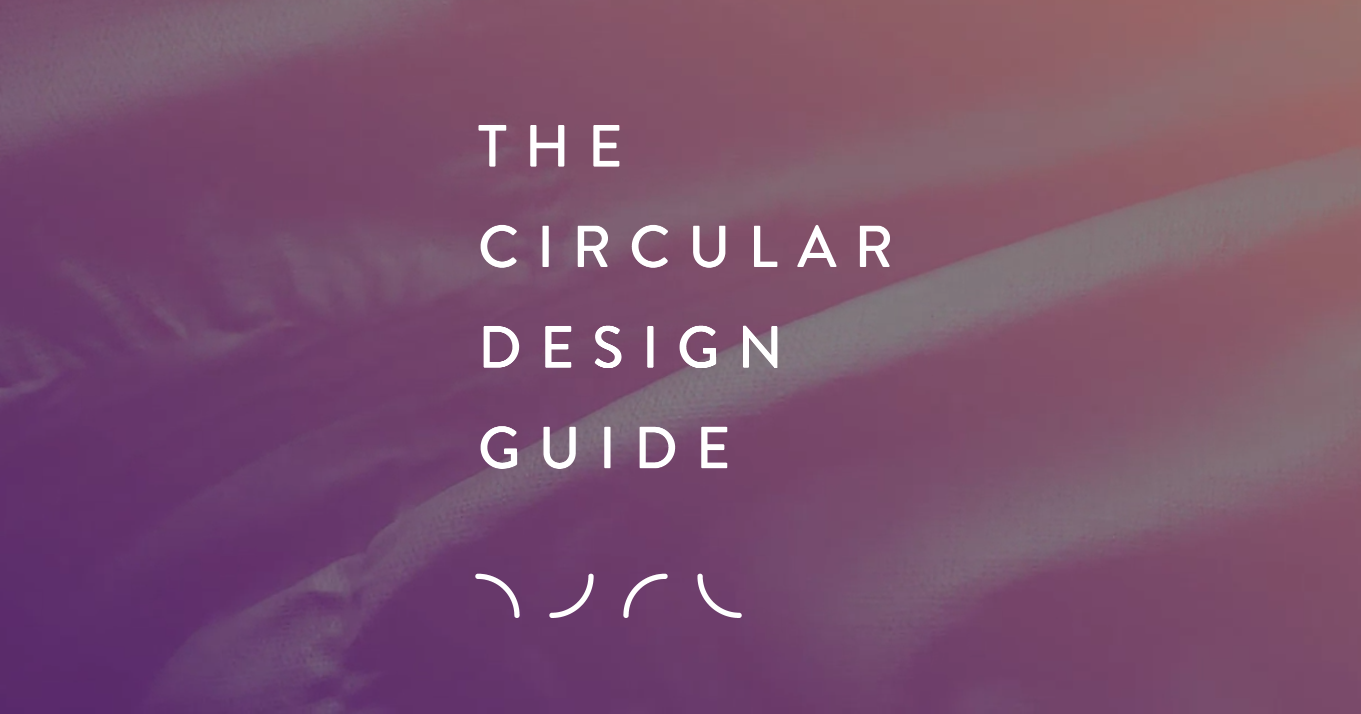There is a wall of textile waste forming. It is fed from textile waste that flows from factories and cascades from closets. This wall reflects a contrasting image to the flashy images that ooze from pages of glossy magazines and off the catwalks.
SERVING UP WASTE-REDUCING UNIFORMS
IS OWNING CLOTHES GOING OUT OF FASHION?
It took my 12-year-old son’s comment about the rapid-fire expansion of Spotify and Uber to make me appreciate the revolution in ownership that is taking place. We don't own our music, thanks to Spotify, and the largest taxi service, Uber, now allows its customers to share their taxi rides with strangers. Then there’s the largest accommodation rental company, Airbnb, which is raking in money by allowing homeowners to shack up with travellers, despite Airbnb not even owning any properties!
Up-cycled luxury
Following her First Prize win for the EcoChic Design Award 2015/16, Polish rising star Patrycja Guzik returned to Hong Kong to embed herself in the Shanghai Tang design team to learn how sustainable fashion can be implemented on a commercial scale. Currently on showcase at the brand’s Duddell Street flagship store in Hong Kong, the resulting up-cycled capsule collection was created from surplus luxury fabrics from the brand’s previous collections. Pat took inspiration from Redress’ hometown, incorporating the rich purples and blues of our megalopolis’ night skyline, and playful ruffle details to emulate Victoria Harbour’s lapping waters into her designs. Click here to learn more about this creative collaboration for change.
Get informed
The way UK consumers treat their clothes has changed over the past three years, a new study from not-for-profit organisation, WRAP has found, with positive shifts in behaviour in how clothes are handled helping to lessen the environmental impact of wardrobes. A key change since WRAP’s pioneering 2012 report is that the amount of clothing discarded in landfills has fallen by approximately 50,000 tonnes. And small changes in habits such as turning the heat down from 40 to 30 degrees when washing, or lessening the use of tumble-dryers and ironing, have already helped cut approximately 700,000 tonnes of CO2e from UK emissions each year. One way for designers, brands and retailers to make a difference is to enhance the durability and quality of the clothing they produce. Click here to find out how.
Join us in the 10 for 10!
Redress is turning 10 this September and we are calling on you all to join us in celebrating! Since 2007, we’ve been working hard to cut waste out of fashion and, while we have achieved and witnessed some great milestones, our work is still critical. We will be running the 10 for 10 campaign throughout our anniversary month and are calling for everyone to join, whether an organisation, brand, school or an individual.
Get informed
With issues around the environmental and social impacts of our clothes ever more present in the media – just take the bad press that viscose has recently been getting as an example – many of us are seeking to know more about the complex supply chains that mysteriously bring our clothes to life, and what we can do to make better choices. A new online course starting this week aims to lift the lid on the global fashion industry and will share a variety of simple techniques to aid self discovery, and on how individuals can press the fashion industry to value people, the environment, creativity and profit in equal measure. Don’t forget to check out our EcoChic Design Award Learn platform, aimed at designers but also relevant for the generally interested, where there are lots more resources including our updated list of books, films, blogs, organisations and much more to get informed.
Vote now to help new up-cycled brand BYT win funding
Despite the fact that textiles are almost 100% recyclable, fashion still leaves behind piles of textile waste. China alone generates 26 million tonnes of textile waste every year. That’s equivalent to 11,400 buses filled with textile waste every single day! Co-founded by our very own Christina Dean, new fashion brand BYT is building on the 10-year legacy of Redress and making it their mission to transform the way that fashion is made and worn. Co-founder and CEO Michelle Bang has been nominated for the Chivas Venture, a fund supporting start-ups that are creating positive change and a better future. We’re calling for YOUR help to secure critical funding to ensure that this affordable luxury up-cycled fashion brand becomes a flying success. Simply click here to vote every week until 12 June, to enable them to secure a share of US$250,000. The fund is shared to finalists according to the number of votes they receive soyour every vote is literally worth gold to them! Please spread the word among your network to support BYT too. Thank you!
Get informed
The Pulse of the Fashion Industry report projects that apparel consumption will rise by 63%, to 102 million tons by 2030, highlighting the urgent need for the fashion industry to address its environmental and social footprints as it continues to push even further beyond the limits of infinite resources on our planet.
Published by The Global Fashion Agenda in collaboration with The Boston Consulting Group, and launched this month at the Copenhagen Fashion Summit, the report draws on the Sustainable Apparel Coalition’s Higg Index and is based on research from industry experts. The analysis provides measurement of the current health of the industry – its "Pulse Score". The overall pulse of the industry is very weak – scoring a mere 32 out of 100 – but the report has good news through proofs-of-concept that show that sustainability initiatives can present a viable financial model for individual businesses already today. In fact it reports that there is an unrealised potential €160 billion per year opportunity for the global economy.
Read the full report here to find out more.
A graphic from the report shows average Pulse Scores by Impact Area and Performance Quartile
What I learned from wearing only 13 pieces of clothing in 31 days
Meet a new generation of designers ready to disrupt fashion
In our biggest search for talent to date, with strong support from over 80 fashion institution partners around the world, we’re absolutely thrilled to announce the EcoChic Design Award 2017 finalists! Representing Asia, Europe and USA, these 10 designers are now ready to bring to life their "design from waste" concepts that wowed our judges. Transforming a variety of waste materials that include industry samples and cut and sew waste, along with secondhand garments including kimonos and wedding dresses, the finalists will demonstrate the potential of tapping into the lucrative market of latent textile waste - in China alone the market value of recycling secondhand clothing has the potential for revenue as high as RMB60 billion. Find out about each of the designers here.
The People's Choice
Israeli designer Lia Kassif wowed the public to clinch the title of EcoChic Design Award 2017 People’s Choice! Her waste-reducing designs, combining military uniforms and wedding gown waste received the majority of votes cast for our 24 semi-finalists’ applications, who collectively received over 4,000 online votes during May. Along with the accolade, Lia will receive a copy of Bloomsbury’s "The Handbook of Design for Sustainability" by Stuart Walker to help further guide her on a path to sustainable fashion design, and she joins the 120+ strong group of EcoChic Design Award alumni working to change the face of fashion. We love Lia’s passion and are looking forward to seeing more from her in the near future!
The EcoChic Design Award 2017 semi-finalists
This year Redress set out on a pursuit for emerging sustainable design talents that spanned Asia, Europe and the USA. During this three-month search, we were overawed by the diverse range of fashion design students and fashion designers who were determined to prove that they have what it takes to cut waste out of fashion. We received a record-breaking number of applications from an impressive 46 countries.
Click here to meet the 24 semi-finalists!
Get informed
Hot off the press this week, the Fashion Transparency Index 2017, reviews and ranks 100 of the biggest global fashion companies on the information they disclose about their social and environmental policies, practices and impacts.
The research found that even the highest scoring brands on the list, none of which scored more than 50% overall, still have a long way to go towards being transparent. The good news? Increased demand from consumers is working - more brands than ever are sharing policies and commitments - but with an estimated 150 billion items of clothing delivered out of factories annually worldwide, there is a long way to go before we truly know who made our clothes.
The report is a must read with clear action points for citizens, brands and retailers as well as government and policy makers. We are with Fashion Revolution in the belief that the first step towards positive change is greater transparency.
Bring it on!
Image credit: Fashion Revolution
In conversation with Christina
With her 2014 TEDx talk, “You are what you wear” still making waves on the internet, Redress founder Christina has been out and about continuing to spread the word about the positive power of fashion! She’s recently been invited to join a number of podcasts including Conscious Chatter where she shared her unconventional journey from dentistry to journalism to sustainable fashion activism, as well as insight on landfills after experiencing them firsthand. She also joined Magnifeco and Fashion Is Your Business during her recent visit to New York to promote the launch of the EcoChic Design Award in the USA, chatting about the next generation of designers and the positive direction they are pushing the fashion industry towards with their passion and sustainable design skills. If you’re in Hong Kong this week, join Christina for her live podcast recording on Friday (28 April) with #Impact - the session will also be followed by a screening of Frontline Fashion!
And the judging begins!
We have had an overwhelming response for the EcoChic Design Award 2017, receiving applications from 46 countries worldwide and we’re feeling positive about the future of the industry with so many passionate emerging designers committed to cutting waste out of fashion, forever!
Selecting the top design talents who will make it through to the next round of our sustainable fashion design competition, are two strong regional judging panels of international fashion experts. On our Asia judging panel are Michelle Bang, Catherine Chiu, Vega Wang, Queenie Yang and Sabyasachi Mukherje who will be perusing waste-reducing design concepts from Asia to select 12 semi-finalists from the region. Separately, Reet Aus, Michelle Bang, Christopher Raeburn, Magdalena Schaffrin and Stefan Siegel will put their heads together to put forward our 12 semi-finalists from the Europe and USA region.
All 24 semi-finalists will be announced on 2 May on www.ecochicdesignaward.com Stay tuned for updates!
Feeding a thirst for sustainable fashion
Since the first EcoChic Design Award in 2011, we have witnessed the launch of the careers of an array of talented sustainable designers who are as passionate as us about changing the fashion industry for the better. We now celebrate a community of 107 alumni - semi-finalists and finalists of the competition. Research indicates that 65% of emerging millennial consumers want sustainable clothes, and our alumni are demonstrating that they want to design them, with more than 20% of our alumni developing their own fashion brands!
Women of Hope
International Women’s Day on 8 March saw the world salute women everywhere, ranging from mothers and mountaineers to models. Redress used the occasion to champion the prolific contribution of women in fashion. From the people who make our clothes - 80% of all garment workers in developing countries are women – to the people who buy them – women account for around 60% of clothing sales – to those high-net worth women who are passionately investing their way into a more sustainable fashion industry – UBS suggest that by 2021 female investors could invest USD2.3 trillion into improving societal good.
Get informed
The majority of products made today still follow a linear model, meaning that once a product has been used for the purpose it was designed for, it gets disposed of meaning the embedded resources are lost forever. But here’s a trillion-dollar idea that Redress are 100% behind – a circular model – where products were designed so that the embedded resources are recaptured and reused to create new products, generating a cycle that goes on infinitely. Earlier this year the Ellen Macarthur Foundation and Ideo launched the Circular Design Guide. This practical guide will, without a doubt, inspire designers to ask new questions about value creation and long-term business health, and how the application of circular principles can improve enterprises. And if you are interested in what is happening in circular innovation in your backyard, check out Circul-r, an organisation highlighting amazing projects all across the world - make sure to visit their initiatives tab.



















